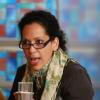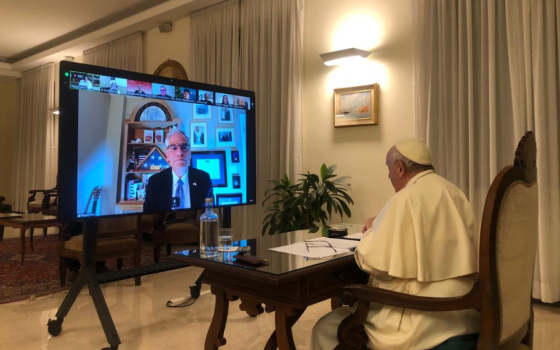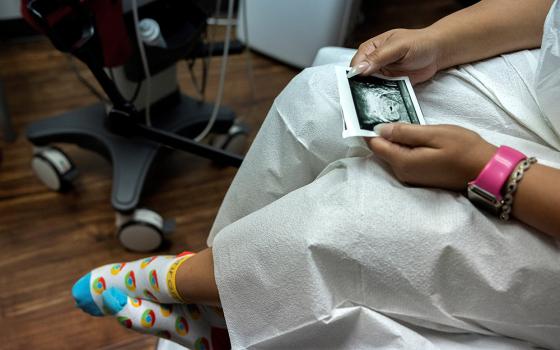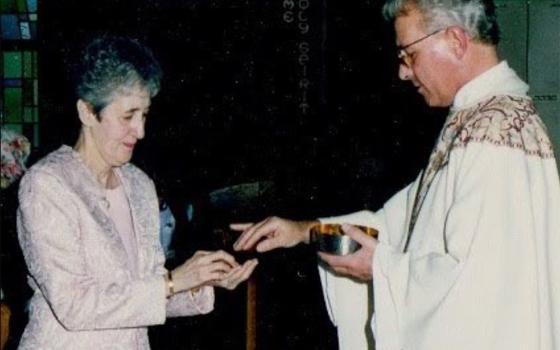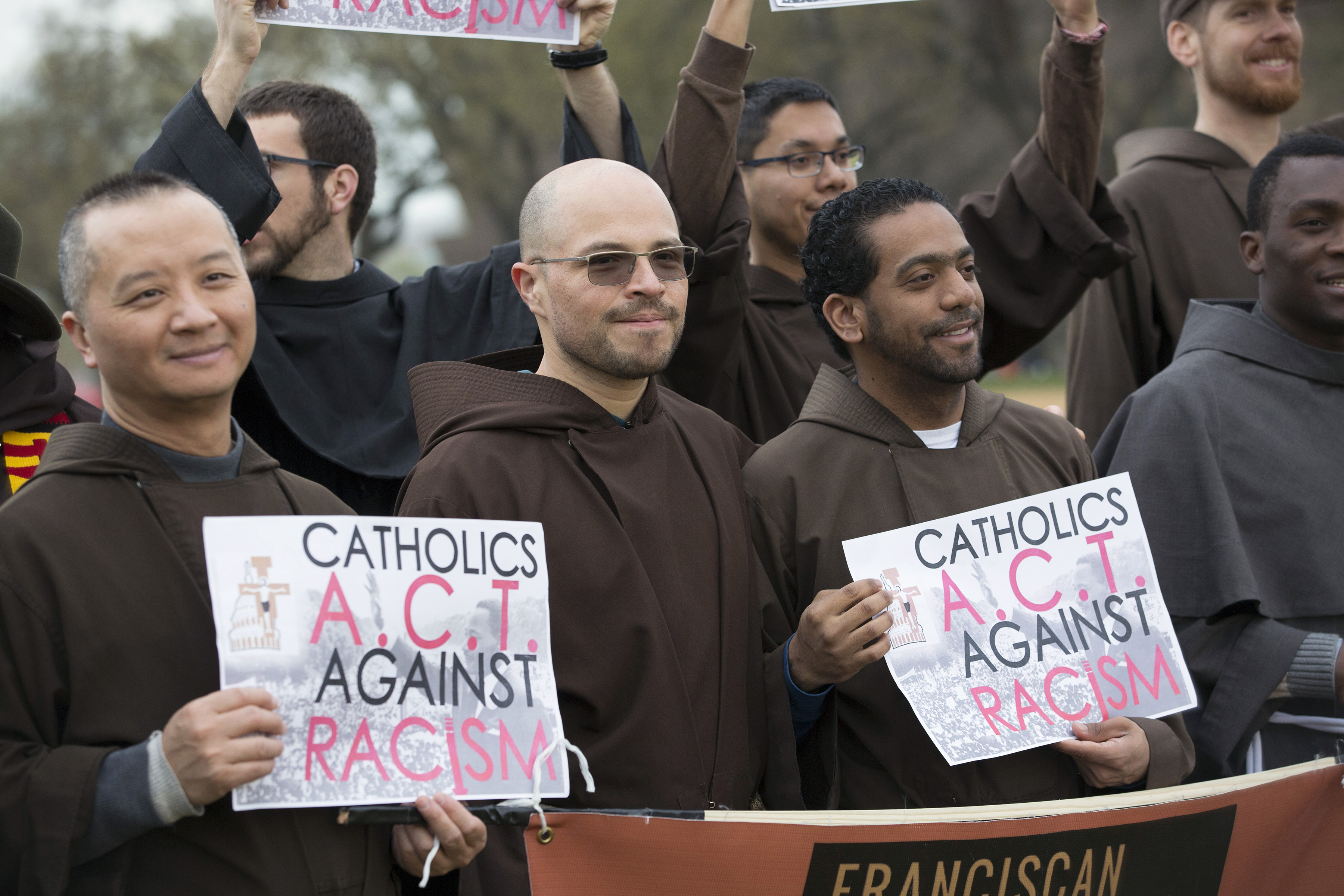
Franciscans hold signs during an "A.C.T. to End Racism" rally on the National Mall in Washington April 4, 2018. The rally marked the 50th anniversary of the assassination of civil rights leader the Rev. Martin Luther King Jr. (CNS photo/The Catholic Standard/Jaclyn Lippelmann)
"Every racist act — every such comment, every joke, every disparaging look as a reaction to the color of skin, ethnicity or place of origin — is a failure to acknowledge another person as a brother or sister, created in the image of God. In these and in many other such acts, the sin of racism persists in our lives, in our country, and in our world."— Open Wide Our Hearts: The Enduring Call to Love - A Pastoral Letter against Racism, 4).
The November 2018 pastoral letter from the U.S. Catholic Bishops, Open Wide Our Hearts: The Enduring Call to Love - A Pastoral Letter against Racism, takes stock of the ways in which the sin of racism continues to impact the human family in the United States. While significant progress is made in certain areas of human dignity, the bishops observe "the evil of racism festers in part because, as a nation, there has been no national process of reconciliation and, all too often a neglect of our history. Many of our institutions still harbor, and too many of our laws still sanction, practices that deny justice and equal access to certain groups of people." (10)
Encouraging in the bishops' approach to the sin of racism is the acknowledgment that complex histories of violence, exclusion and invisibility continue to impact the life prospects and dignity of communities today. The letter rehearses the oppression, violence and exclusion against Native Americans, African-Americans and Latinx peoples. These stories are not presented as if they occurred in some distant past marked by the antiquated racist ideologies of long-gone generations in U.S. society. They are the stories of injustices and wrongs that infect U.S. culture, laws and practices: "These examples from the experiences of Native, African and Hispanic Americans demonstrate how, as a nation, we have never sufficiently contended with the impact of overt racism. Nor have we spent the necessary time to examine where the racist attitudes of yesterday have become a permanent part of our perceptions, practices and policies of today or how they have been enshrined in our social, political and economic structures." (16)
"Too many good and faithful Catholics remain unaware of the connection between institutional racism and the continued erosion of the sanctity of life." (10)
In the past two weeks the current administration has declared that reuniting refugee and migrant children separated at the border with their families – now believed to be many more thousands than originally reported — is an "improvable" and "impossible" task. These reports add to the cruelty of family separation, the administration's policy that sought to dissuade immigrants and refugees from crossing the southern U.S. border without proper documentation. Too many good and faithful Catholics, privileging a narrow reading of the rule of law over human rights and the dignity of every human being, continue to defend the administration by supporting the notion that being in the country "illegally" is a crime, opening the door to the unjust treatment of migrants. Too many good and faithful Catholics, myself included, have failed to urgently, loudly and without ceasing raise the alarm about this crass violation of human dignity, "the continued erosion of the sanctity of life." (10)
Advertisement
Taking awaythe children of migrants from their relatives and caretakers, and transferring them to the care of the Department of Health and Human Services, more often than not without the ability to trace where they have been placed, makes the task of reunification close to impossible. Such actions amount to the trafficking of children by the U.S. government and is one of the manifestations of the sin of racism today. In their pastoralletter the bishops make reference to "boarding schools" and "orphanages" where Native American children were "forced to abandon all facets of their culture, including their native language." (11-12) But we know that the sending of children to these boarding schools and orphanages was not the willing project of Native American communities, but, rather, the imposition of a plan to eradicate Native American cultures and ways of life. Native American communities paid the price when their children were unwillingly taken away from their families, to be brought up in "proper" white families. This period of racial violence was marked by the separation of brown families in the effort to sustain and expand the Anglo-Saxon project of Manifest Destiny. Meanwhile, black families who were enslaved experienced continuous separation for the goals of promoting white economic interests. Indeed, the business of this nation seems to be the separation of black and brown families in the name of expansion, prosperity and security for some.
"As bishops, we unequivocally state that racism is a life issue." (30)
As I write these words, the House Committee on Energy and Commerce is holding the first of three hearings on "Examining the Failures of the Trump Administration’s Inhumane Family Separation Policy." Will this be the first step in a "national process of reconciliation" that the bishops suggest is sorely needed for healing the breach of racial hatred? Will we be forced to come face to face with the ways in which family separation is as embedded into the DNA of the nation as the 4th of July? Will "good and faithful Catholics" take the troubling revelations of these hearings, along with the moral exhortation of the bishops' pastoral letter, as a clarion call to actively address this life issue? "Love compels each of us to resist racism courageously." (18) Let all good and faithful Catholics demand family reunification urgently, loudly and unceasingly, and unequivocally state with the bishops, "racism is a life issue." (30)
[MT Dávila is Lecturer in Religious and Theological Studies, Merrimack College.]
